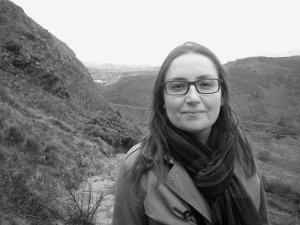Welcome to CUNY Academic Commons. This is your first post. Edit or delete it, then start blogging!
Month: October 2018
 From ‘the ordinary recklessness of girls’ to #MeToo:
From ‘the ordinary recklessness of girls’ to #MeToo:
Tracing changes of legal and discursive practices around sexual violence in Poland
4:30pm to 6:00pm
53 Washington Square South
Agnieszka Kościańska received her PhD in 2007 and habilitation in 2015 in ethnology/cultural anthropology from the University of Warsaw, Poland. She is an associate professor in the Department of Ethnology and Cultural Anthropology, University of Warsaw and a senior researcher in a Humanities in the European Research Area research project (Cruising the 1970s: Unearthing Pre-HIV/AIDS Queer Sexual Cultures, http://www.crusev.ed.ac.uk/). Her research interests include gender, sexuality, sexual violence, sexology, sex education, religion, and race in Central Europe. In the past, she was a visiting fellow at Harvard University (2010-2011, Marie Curie fellowship), the New School for Social Research (2006, Kosciuszko Foundation grant), the University of Copenhagen (2005, Danish Governmental scholarship), Edinburgh College of Art (2017, European Visiting Research Fellowship by the Caledonian Research Foundation and the Royal Society of Edinburgh), and the Imre Kertész Kolleg Jena (2016, 2017-2018).
She is the author of Zobaczyć łosia (To See a Moose. The History of Polish Sex Education from the First Lesson to the Internet, 2017), Płeć przyjemność i przemoc (Gender, Pleasure and Violence: The Construction of Expert Knowledge of Sexuality in Poland, 2014, English version under contract with Indiana University Press, to be published in 2020), Potęga ciszy (The Power of silence: Gender and Religious Conversion. The Case of a New Religious Movement, the Brahma Kumaris, 2009) and (co-)editor of several volumes and journal special issues on gender and sexuality – the most recent being ‘The science of sex in a space of uncertainty: Naturalizing and modernizing Europe’s East, past and present’ Sexualities, no. 1-2 2016 (with Hadley Renkin). Two of her book projects were generously supported by the Network of East-West Women: Gender. Perspektywa antropologiczna (Gender. An Anthropological Perspective, co-edited with Renata Hryciuk, the first Polish handbook in the anthropology of gender, 2 volumes, 2007), and Kobiety i Religie (Women and Religions, co-edited with Katarzyna Leszczyńska, 2006).
More: https://www.etnologia.uw.edu.pl/en/about-us/people/academic-and-non-academic/agnieszka-koscianska
All are welcome, but please RSVP to Johnson@brooklyn.cuny.edu so that we can leave your name at the door.
 worked in Kyrgyzstan as a Fulbright Creative Writing Fellow and as a communications and editing consultant for the United Nations office in Bishkek.
worked in Kyrgyzstan as a Fulbright Creative Writing Fellow and as a communications and editing consultant for the United Nations office in Bishkek.
